Advisory Board
World History Commons Advisory Board members bring a commitment to humanities scholarship, pedagogy, digital humanities, and OERs. They provided extensive feedback on the scholarship, pedagogy, and usability of World History Commons at key points throughout the development process.
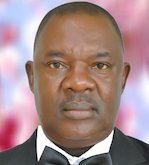
Peter Folorunsho Adebayo is an Associate Professor in the Department of History and International Studies at the University of Ilorin (Nigeria). In 2003, he became a Fulbright Scholar and in 2005, he became a laureate of the Council for the Development of Social Science Research in Africa (CODESRIA). In 2009, he became the founding president of the newly established African Network of Global History (ANGH-RAHM) and a member of the Knight of Saint Mulumba (KSM) in 2012. He was Acting Head of the Department of History and International Studies for two years (2012-2014) and also the postgraduate coordinator for four years. He is currently a Visiting Professor at Elizade University, Ilara-Mokin Akure Ondo State where he is the Chairman for the establishment of new programs: Criminal Justice, Sociology, Political Science, Security, and Peace Studies. Some of his publications include “Foreign Minority and the Nigerian Economy: A Study of Lebanese Traders in Lagos, 1900-1945,” (Sapha, Journal of Historical Studies, 2003) and “Determinants of Cross Border Migration in North-East Geopolitical Zone of Nigeria” with Frederick Tasi in Yobe Journal of Economics.
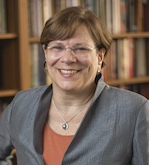
Lauren Benton is Nelson O. Tyrone, Jr., Professor of History and Professor of Law at Vanderbilt University. She is a comparative and world historian whose research focuses on law in European empires, the history of international law, and Atlantic history. Her most recent book [with Lisa Ford] is Rage for Order: The British Empire and the Origins of International Law, 1800-1850 (Harvard University Press, 2016). Other books include A Search for Sovereignty: Law and Geography in European Empires, 1400-1900 (Cambridge University Press, 2010) and Law and Colonial Cultures: Legal Regimes in World History, 1400-1900 (Cambridge University Press, 2002), which was awarded the J. Willard Hurst Prize and the World History Association Book Prize. Benton has co-edited three books, including (with Bain Atwood and Adam Clulow) Protection and Empire: A Global History (Cambridge University Press, 2017) and (with Richard Ross) Legal Pluralism and Empires, 1500-1850 (New York University Press, 2013). Benton received her A.B. degree from Harvard University in 1978 and a Ph. D. in anthropology and history from John Hopkins University in 1987.
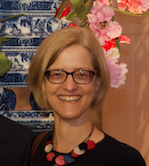
Anne Gerritsen is Professor of History at the University of Warwick and involved in the Global History and Culture Centre. For the period from 2013 to 2018, she holds the Kikkoman Chair for the study of Asia-Europe exchange, with special attention to art, material culture, and human dynamics at the University of Leiden (Netherlands). She was educated at the University of Leiden and holds a Ph. D. from Harvard University. She has published in a number of different areas, including Chinese history (the religious cultures of the Song-Yuan-Ming period, friendship, gender and literature, and the history of Jindezhen), material culture (including three co-edited books with Giorgia Riello: Writing Material Culture History, The Global Lives of Things, and the Global Gift), global design history, and the global history of porcelain trade. Most recently, she has been awarded a grant by the Wellcome to Trust about the global exchange of medical commodities.
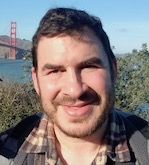
Trevor R. Getz is Professor and Chair of History at San Francisco State University and Bonsall Visiting Professor of History at Standard University. He is the author or co-author of ten books, including the award-winning Abina and the Important Men (Oxford University Press), which won the American Historical Association James Harvey Robinson prize. His forthcoming books include Slavery and its Legacy in Ghana and the Diaspora (co-edited with Rebecca Shunway, Bloomsbury), A Primer for Teaching African History (Duke University Press), and the Crucible of Modernity: The Long Nineteenth Century, 1750-1914 (Bloomsbury).

Candice Goucher is Professor of History and Co-Director of the Collective for Social and Environmental Justice. She teaches courses in world history, African history, the history of food, and Caribbean studies. She was the co-lead scholar on Bridging World History (funded by a $2.28M grant from Annenberg and the Corporation from Public Broadcasting). Her recent work includes Congotay! Congotay! A Global History of Caribbean Food (ME Sharpe/Routledge, 2014) and the two-volume world history, co-authored with Linda Walton, World History: Journeys from Past to Present 2nd edition (Routledge, 2012), translated into Chinese, Korean, and Portuguese. With Graeme Barker, she co-edited Volume 2 of the Cambridge History of the World: A World with Agriculture (Cambridge University Press, 2015). In 2015, the World History Association awarded her the Pioneer in World History prize. She was the Trent R. Dames Fellow in the History of Civil Engineering (2014-15) at the Huntington Library, while researching a new book on the history of iron in the Atlantic World.
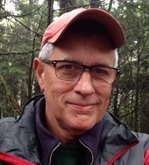
Mills Kelly is a Professor of History in the Department of History and Art History at George Mason University, executive director of the Roy Rosenzweig Center for History and New Media, and has served as president of the International Society for the Scholarship of Teaching and Learning (ISSOTL). His work in digital humanities, largely focused on using digital resources to improve the teaching and learning of history, has won a number of awards, including the Commonwealth of Virginia’s Outstanding Faculty Award, the state’s highest recognition of faculty excellence, George Mason University’s Teaching Excellence Award, and with his collaborator Kelly Schrum, the James Harvey Robinson Prize from the American Historical Association for their two National Endowment for the Humanities funded Exemplary Education Projects: World History Matters and Women and World History. During the 1999-2000 academic year, Kelly was a Pew National Fellow with the Carnegie Foundation for the Advancement of Teaching. His most recent book, Teaching History in the Digital Age (University of Michigan Press, 2013; paperback 2016) addresses the most important issues facing humanities educators in this era of digital abundance. Kelly’s current digital work is a research collaboration with undergraduate students at Mason on the history of the Appalachian Trail. His prior scholarship focused on the rise of radical nationalist movements in Habsburg Central Europe in the late nineteenth and early twentieth centuries.
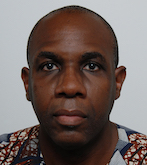
Lazare Ki-Zerbo earned a doctoral thesis at the Archives Husserl of the Ecole Normale Supérieure on the phenomenology of Husserl in 1994. He then taught in Burkina Faso at the University of Ouagadougou. He collaborated with the Council for the Development of Social Science Research in Africa (CODESRIA), edited three books on Pan-Africanism, and collaborated from 2004 to 2014 with the Organisation international de la Francophonie as a human rights officer. He is currently on the executive board for the Joseph Ki-Zerbo Foundation for African History and an associate researcher at the National Institute for Sciences of the Society in Burkina Faso.
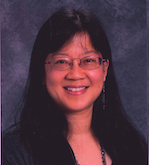
Angela A. Lee has been a world history educator at Weston High School in Weston, Massachusetts, for twenty years. She developed the Modern World History curriculum from 1998 onward, as well as the AP World History course. Currently, she is serving on the Massachusetts Department of Education’s History and Social Studies Standards Review panel working to keep world history on the forefront of the new MA state curriculum framework. Lee was one of the 90+ readers at the first AP World reading in 2002 and has been a Table Leader for AP World History since 2006. Most recently, she served as a member of the AP World Test Development Committee from 2013-2017. Lee has been an active member of the New England Regional World History Association (NERWHA) Executive Council, served on World History Association Nomination Committee from 2011-2013, and is currently serving on the WHA Teaching Committee. Her passion is to connect historians and professors with those who are teaching world history in secondary schools to benefit both constituencies, and she has enjoyed presenting at conferences to show innovative pedagogical strategies to participants. She is active on social media to help connect people through setting up the Facebook Page for NERWHA and WHA, and also overseeing the NERWHA and WHA account on Twitter, as well as creating a presence for AP World History teachers under the hashtag #whapchat.
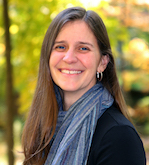
Nicole Magie is Associate Professor of Social Science and an Archivist at Olivet College. She earned her Ph.D. in History from Michigan State University, is a member of the World History Association (WHA), and is on the Executive Committee of the Midwest World History Association (MWWHA). She is a world migration historian with an emphasis on Latin America, and has been awarded multiple fellowships to conduct archival and oral history research in the United States, Mexico, and Brazil. Her current research focuses on connecting the local histories of migrant communities to world history.
Héctor Maldonado is Associate Professor of World History at the Universidad Nacional de San Marcos in Lima, Peru. He organizes the International Seminar of Global History (ISGH), which promotes global studies and includes a network of international global history scholars. Dr. Maldonado writes on Peruvian modern history, particularly the connections between women, science, marine resources, and public policy.
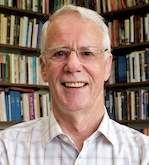
Patrick Manning, a historian and author, began his career studying African history. His focus expanded to link African history more closely to world history, examining the African Diaspora, human migration patterns, and community life. Today, Manning’s work centers on developing coherent theory in world history: processes of social evolution, institutional change through social groups and networks, and the history of science and knowledge – as well as today’s inequality, environmental destruction, and popular social movements. He has published curriculum outlines for teaching this approach to world history. Manning is Andrew W. Mellon Professor of World History, Emeritus, at the University of Pittsburgh; he was president of the American Historical Association (2016), founding director of the World History Center at Pitt (2008 – 15), and received the 2013 Pioneer in World History Award.
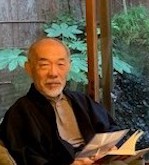
Shingo Minamizuka is the Director of the Research Institute for World History that is attached to the NPO Forum for Culture and History, Tokyo (Japan). He was the first President of the Asian Association for World History that was established in 2009. While the narrow field of his study is the modern history of Hungary, he has recently been working on world history as seen from the Asian point of view. His main publications include A Silent Revolution: Hungarian Peasants and Populist Movements 1930-1948 (Tokyo, 1987), The World History of the Outlaws (Tokyo, 1999), and The Social Bandit in Nineteenth-Century Hungary (Columbia UP, 2008).
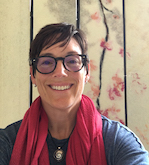
Laura Mitchell is Associate Professor of History in the School of Humanities at U.C. Irvine. She holds a Ph.D. in African History from UCLA and her research interests include Sub-Saharan Africa, South Africa, Dutch East India Company, colonialism, environment, labor and slavery, and family and household formation. Some of her most recent publications include The New World History: A Field Guide for Teachers and Researchers, co-edited with Ross Dunn and Kerry Ward (University of California Press, 2016), and Encounters Old and New in World History: Essays Inspired by Jerry Bentley, co-edited with Alan Karras (University of Hawaii Press, 2017).
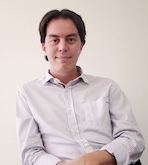
Alexandre Moreli is Associate Professor of International History at the Institute of International Relations/University of São Paulo (Brazil). He holds a Ph.D. from Sorbonne and his current interests cover the discussions on the “global turn” of humanities, transatlantism, and the creation of non-aligned movements in the decade after the Second World War.
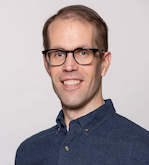
Jack Norton is a faculty member in History and Political Science at Normandale Community College. He was the former campus leader for a faculty development group called the Center for Teaching and Learning. He teaches courses in World History and East Asian History.
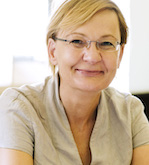
Glenda Sluga is Professor of International History and ARC Kathleen Fitzpatrick Laureate Fellow at the University of Sydney (Australia). She has published widely on the cultural history of international relations, internationalism, the history of European nationalisms, sovereignty, identity, immigration, and gender history. In 2013, she was awarded a five-year Australian Research Council Laureate Fellowship for Inventing the International - The origins of Globalization. Her most recent book is Internationalism in the Age of Nationalism (University of Pennsylvania Press, 2013) and with Patricia Clavin, Internationalisms, a Twentieth Century History (Cambridge University Press, 2017). In 2002, she was awarded the Max Crawford Medal by the Australian Academy of the Humanities. In 2006, she was appointed a member of the International Scientific Committee for the History of UNESCO. In 2009, she was elected to the Australian Academy of the Humanities. In 2012, she won the inaugural Faculty of Arts and Social Sciences Research Mentoring Award. In the past, she has been a visiting fellow at All Souls Oxford, the University of Vienna, Centre for History and Economics, and Charles Warren Centre, Harvard University, the Fondation Maison des Sciences de l’Homme, Paris, the University of Bologna, Clare Hall, Cambridge University, Leiden University, the European University Institute, Monash University, and the ANU. She is a member of the boards of the Toynbee Prize Foundation and the Journal of World History.
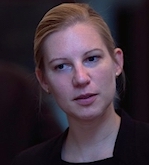
Carolien Stolte is an Assistant Professor of History at the Institute for History, Leiden University (Netherlands). Her research focuses on South Asia in World History, on which she has published widely in journals such as the Journal of Global History, Modern Asian Studies, and Comparative Studies in Society and History. She is currently interested in India’s role in the Afro-Asian movement during decolonization and co-directs a project on Afro-Asian Networks in the early Cold War with Su Lin Lewis of Bristol University. Stolte is editor-in-chief of the World History journal Itinerario as well as editor of the Leiden University Press book series Global Connections. From 2012-2014 she coordinated the Cosmopolis Project. She was a Niels Stensen Postdoctoral Fellow at Harvard University (2014-2015) and currently serves as a member of the Executive Council of the World History Association (2016-2019).
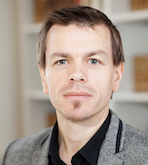
Roland Wenzlhuemer is Professor for Modern History at the University of Munich (Germany). He studied history at Salzburg University, Austria, and earned a Ph.D. on the history of the British Crown Colony Ceylon in the late 19th century there. After a stint at the Centre for British Studies at Humboldt-University Berlin, Roland joined Heidelberg University and finished his second book on the history of telegraphy. Roland is particularly interested in global history and the history of globalization. He currently tries to contribute to the conceptual foundations of this research field.